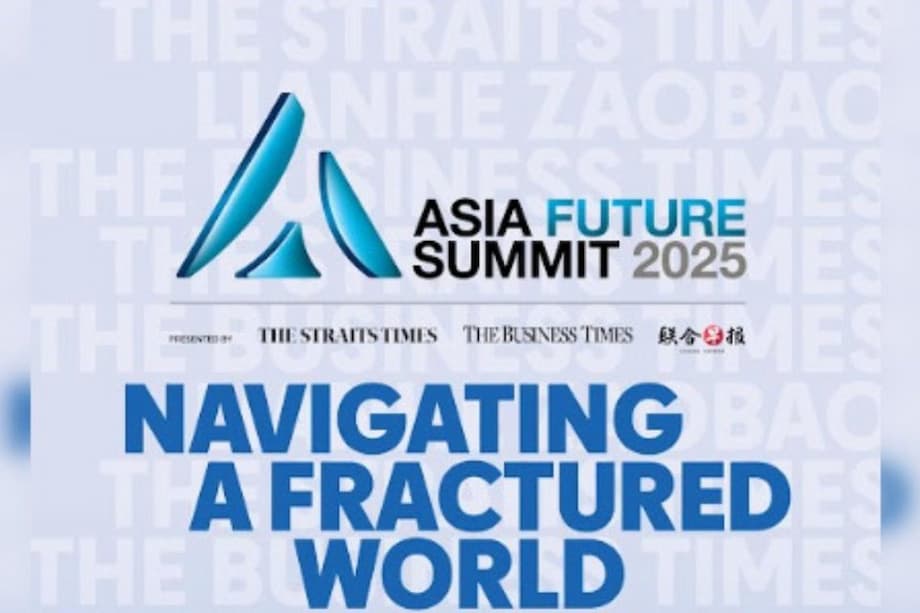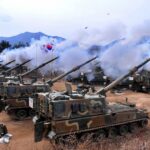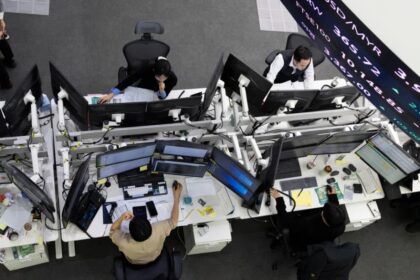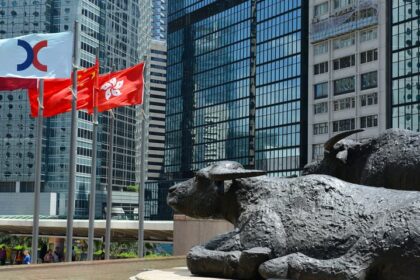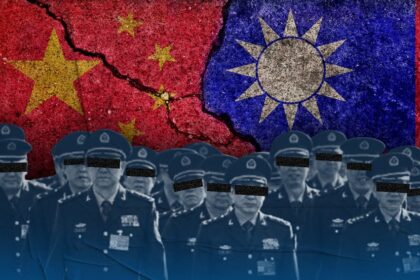Why this summit matters now
The Asia Future Summit returns to Singapore for its fourth edition on Oct 8 to 9 at The Ritz Carlton, Millenia Singapore. Co organized by The Straits Times, Lianhe Zaobao, and The Business Times, the annual forum convenes policy leaders, corporate chiefs, and scholars to examine how Asia can steer growth and security in a time of strain. The 2025 theme, Navigating a Fractured World, signals a practical focus on solutions. With global trade tensions, technology rivalry, and uneven growth shaping the outlook, the summit aims to surface ideas that are durable and workable across borders.
- Why this summit matters now
- Who opens and who closes the conversations
- Sino US relations: who will set the tone
- South east Asia outlook: trade, shipping and investment
- Business and economics: capital, tech and growth
- How the summit has evolved
- Why this agenda matters for Asia’s public and private leaders
- Practical details
- Key Points
Organizers frame the conversation around a simple reality. Asia accounts for about 60 percent of global growth, yet faces rising strategic competition and economic volatility. Geopolitical frictions continue to reshape supply chains and technology flows. Export controls and investment screening are becoming more common. Inflation and interest rate cycles have challenged household budgets and business planning. The word fractured captures a landscape where cooperation persists, but frictions are more frequent. Speakers will examine where common ground still exists, how risk can be managed without isolating markets, and what Asia can do to sustain momentum.
According to coverage by The Straits Times and The Business Times, discussions will include rebuilding public trust through stronger institutions and transparency, new leadership and workforce challenges, and perspectives from Asia’s next generation. Panels are set to revisit US China trade relations, the resilience of ASEAN supply chains in a protectionist age, and the potential of the Johor Singapore Special Economic Zone. Sessions will be moderated by editors from the three newsrooms. OCBC is the presenting sponsor.
Who opens and who closes the conversations
Coordinating Minister for National Security and Minister for Home Affairs K. Shanmugam will open the summit with a dialogue. He is expected to address issues at the intersection of security and the economy, including social cohesion, online harms, regional stability, and the hard trade offs governments face when political and security risks spill into business decisions. His portfolio gives him a vantage point on rule of law and public order, both of which influence investor confidence and social resilience.
Coordinating Minister for Social Policies and Minister for Health Ong Ye Kung will deliver the closing dialogue. Health systems, demography, and the cost of living are now core to economic competitiveness. Ong has championed preventive care and a long term approach to population health in Singapore, and he has also worked on education and workforce policy. His closing remarks are likely to tie the summit’s geopolitical and business themes to the lived experience of households and workers, including how societies can maintain trust while adapting to change.
Sino US relations: who will set the tone
Two seasoned voices will anchor the discussion on US China dynamics. Professor Wu Xinbo, dean of the Institute of International Studies and director of the Center for American Studies at Fudan University, is a widely cited scholar of great power relations. He brings a careful reading of strategic intentions in Washington and Beijing, and how domestic priorities in both capitals shape policy toward Asia.
Ashok Mirpuri, Temasek’s head of international policy and governance, will provide a view that bridges diplomacy and investment. Mirpuri previously served as Singapore’s ambassador to the United States, which gives him practical insight into how government policy, congressional pressure, and corporate risk management interact. In his current role, he examines the policy environment that affects capital allocation and portfolio risk across markets.
What issues are likely on the table
The conversation will likely move beyond headline tariffs to the mechanics of strategic competition. Export controls on advanced semiconductors, investment restrictions in sensitive sectors, and national security reviews of technology supply chains are reshaping trade. Many governments use the term de risking to describe efforts to reduce exposure to single points of failure. De risking is different from full decoupling. It seeks to diversify rather than sever ties, but it can still be costly if companies must duplicate suppliers, facilities, or compliance systems.
Financial and corporate leaders are wrestling with the ripple effects. Investors must weigh the growth potential of China and the United States against rising compliance costs. Manufacturers are testing China plus one strategies in Southeast Asia to avoid concentration risk. Boardrooms want clarity on where guardrails are likely to harden, so they can plan cross border capital expenditure and partnerships with more confidence. A panel that combines academic perspective with policy and investor experience will be well placed to separate signal from noise.
South east Asia outlook: trade, shipping and investment
Malaysia’s Deputy Minister of Investment, Trade and Industry Liew Chin Tong will join the outlook panel. His ministry has been pursuing strategies to move up the value chain, deepen integration with regional supply networks, and attract investment that creates quality jobs. Malaysia and Singapore are exploring closer ties through the Johor Singapore Special Economic Zone, which aims to ease trade flows and improve connectivity for businesses on both sides of the Causeway.
Teo Siong Seng, executive chairman of Pacific International Lines and chairman of the Singapore Business Federation, brings the view from shipping and the broader business community. Shipping is the backbone of global commerce, and Southeast Asia’s ports and logistics corridors are vital to the smooth flow of goods. Teo has long argued for efficiency, reliability, and open sea lanes, which are essential for small and medium sized enterprises as well as multinationals.
The organizers also list Mari Pangestu, Indonesia’s Special Advisor for International Trade and Multilateral Cooperation to the President, among the speakers. She previously served as Indonesia’s trade minister and later as a senior leader at an international financial institution. She is expected to speak on Indonesia’s priorities, the role of ASEAN in trade integration, and how to balance industrial policy with open markets.
Topics to watch
- The Johor Singapore Special Economic Zone, an initiative to boost cross border trade, logistics, and investment facilitation
- Supply chain relocation to Southeast Asia, and what it takes to sustain competitiveness in electronics, automotive parts, and consumer goods
- Maritime security, port capacity, and the push to digitize logistics documentation to cut delays
- The digital economy, including cross border data flows and trusted frameworks for artificial intelligence adoption
- Energy transition in a practical key, from green shipping fuels to financing for renewable projects and grid upgrades
Business and economics: capital, tech and growth
On the finance front, OCBC deputy chief executive officer and head of global wholesale banking Tan Teck Long will speak on capital flows and corporate strategy. His portfolio spans lending, transaction banking, treasury solutions, and sustainability linked finance. Topics are likely to include the cost of capital in a higher for longer rate environment, liquidity conditions, and how banks are underwriting transition projects while managing risk.
Ye Gang, co founder and chief operating officer of Sea Group, will cover the digital economy. Sea operates e commerce, gaming, and digital financial services across the region. Ye is expected to discuss how consumer demand, payments infrastructure, and regulatory guardrails are evolving, as well as how companies can keep investing in product, logistics, and data security in a more cautious funding climate.
From resilience to reinvention
Summit organizers want discussions to move from crisis playbooks to long term strategy. That includes building supply chains that are both efficient and diversified, using data responsibly while meeting privacy rules, and looking beyond quarterly pressures. For many firms, the next step is to translate de risking into specific actions, such as dual sourcing critical parts, deepening regional manufacturing networks, and investing in workforce skills that support automation and artificial intelligence. The message is to focus on clarity of purpose, so that day to day decisions add up to a durable edge.
How the summit has evolved
The 2023 edition highlighted how the forum has grown into a regional platform. It gathered more than 20 speakers and about 300 delegates for a bilingual program in Singapore. The agenda marked the centenary of Lee Kuan Yew’s birth with sessions on geopolitics, the economy, and society. Speakers included Prime Minister Lee Hsien Loong, Senior Minister Teo Chee Hean, Deputy Prime Minister Heng Swee Keat, former Australian prime minister John Howard, and Ma Ying jeou, the former leader of Taiwan and head of his namesake foundation. The breadth of that line up set a high bar for subsequent years.
At the 2023 closing dialogue, Singapore’s Prime Minister Lee Hsien Loong summed up the stakes for Asia. He told participants that the region’s future depends on policy choices, regional cooperation, and domestic stability. As he put it in his remarks:
Asia remains a vibrant region with great promise. Asian countries have agency. If we can make the right choices, prioritising cooperation, strengthening multilateralism, and taking advantage of new opportunities, then we can create the conditions for peace, security, and continued prosperity, even in this turbulent world.
Those points still resonate for 2025. Strategic rivalry has not eased, yet the opportunities remain large for countries and firms that can read the risk map and take calibrated decisions. The summit’s return to the Ritz Carlton with policy makers, business leaders, and scholars signals that the region is still committed to open exchange and practical problem solving.
Why this agenda matters for Asia’s public and private leaders
Several threads run through the 2025 program. One is the need to rebuild and sustain trust. Citizens measure trust through reliable services, fair opportunities, and honest institutions. Investors look for consistent rules, stable taxes, and predictable enforcement. Strengthening transparency and institutions is not an abstract exercise. It is about making it easier to invest, innovate, and plan across election cycles.
Another thread is the workforce challenge. Companies are digitizing operations, adopting artificial intelligence, and redesigning roles. Governments are updating education, training, and immigration policies to support growth without leaving communities behind. The summit gives leaders a place to test ideas on lifelong learning, talent mobility, and productivity, which determine whether growth is inclusive and resilient.
What attendees can expect
The two day program mixes keynote dialogues with focused panels and editor moderated exchanges. The combination of policy makers, corporate leaders, and academic experts is designed to stress test assumptions and explore trade offs in real time. Participants can expect candid discussions on topics like data governance, climate finance, and regional security, along with opportunities for networking on the sidelines.
Practical details
The Asia Future Summit 2025 takes place on Oct 8 to 9 at The Ritz Carlton, Millenia Singapore. It is jointly presented by The Straits Times, Lianhe Zaobao, and The Business Times, with OCBC as presenting sponsor. The opening dialogue will be delivered by Coordinating Minister for National Security and Minister for Home Affairs K. Shanmugam. The closing dialogue will be delivered by Coordinating Minister for Social Policies and Minister for Health Ong Ye Kung. Other confirmed speakers include Professor Wu Xinbo of Fudan University, Ashok Mirpuri of Temasek, Malaysia’s Deputy Minister of Investment, Trade and Industry Liew Chin Tong, Teo Siong Seng of Pacific International Lines and the Singapore Business Federation, Ye Gang of Sea Group, and Mari Pangestu, Indonesia’s Special Advisor for International Trade and Multilateral Cooperation to the President, according to coverage by the organizing newsrooms.
Key Points
- Dates and venue: Oct 8 to 9 at The Ritz Carlton, Millenia Singapore
- Theme: Navigating a Fractured World, with a focus on practical cooperation amid risk
- Opening and closing: K. Shanmugam opens, Ong Ye Kung closes
- Sino US panel: Professor Wu Xinbo and Ashok Mirpuri examine strategic competition and trade
- South east Asia outlook: Liew Chin Tong, Teo Siong Seng, and Mari Pangestu assess growth, supply chains, and integration
- Business and economics: OCBC’s Tan Teck Long and Sea Group’s Ye Gang speak on capital, digital economy, and strategy
- Topics: US China trade relations, ASEAN supply chain resilience, and the Johor Singapore Special Economic Zone
- Format and sponsors: Sessions moderated by editors from the organizing newsrooms, with OCBC as presenting sponsor


